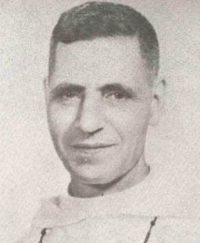Bamboos are no longer being burned at night. Nobody can explain such fantastic illuminations in different places during the first nightly raids. They tell us they are the Japanese, a pro-Japanese spies who burn assortments of multicolored lights which signal to the enemy pilots the different places and the nature of their targets: friends, enemies, military installations, etc., depending on these colored lights’ combinations.
We are concerned about the provisions. We have enough for about one year. The “experts” assure us that the war will last at least ten months. We hope they are right!
At noontime, an “extra” of the dailies announced the great catastrophe of the vessel “Corregidor”. This was the heaviest and fastest of the boats anchored at the river. It set sail the night before without previous notice. Nevertheless, it was teeming with passengers destined for the Visayas. Around midnight, it hit a mine near the island of Corregidor and in three to five minutes it was swallowed up by the black waters of Manila Bay. It cannot be ascertained how many lives were lost. The Compañía Marítima does not have a list of the passengers. Many had filtered in without paying the fare, or mounted aboard with the idea of paying later on. Only 200 passengers were rescued, and the number of those drowned is estimated at 600 to 800.
Among the passengers were assemblymen, students from the South, and well-known families, including the brothers of the Archbishop of Cebu, one of whom was a professor and secretary of the Faculty of Law of the University of Santo Tomas; the other was a member of the Assembly. The assemblyman drowned, but the faculty member of UST was saved after swimming and floating for six hours. Those who were trapped in the cabins—women and children, for the most part—are forever buried in the bosom of the sea. Even among those who were on deck and had time to jump overboard, many were drowned for lack of lifesavers or for their inabiity to resist the current of the waves.
It was the first great tragedy of the war, and God permit that it be the last.
